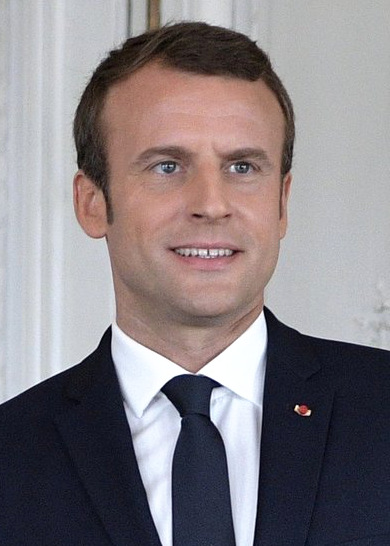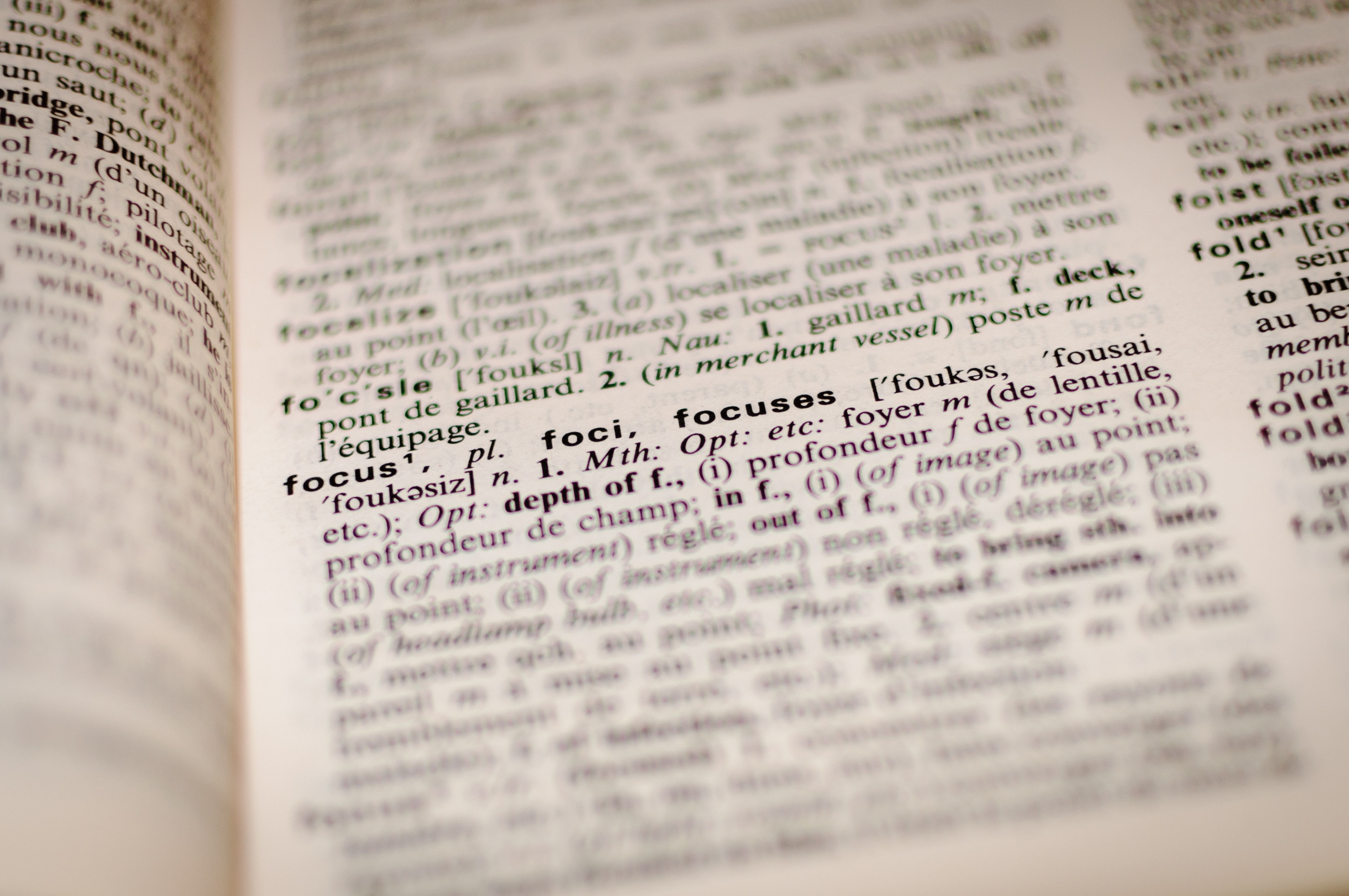English language proficiency: why is France lagging behind?
 With globalisation well underway, English language proficiency is a recognised mark of international prowess. And yet, why does France continue to trail behind?
With globalisation well underway, English language proficiency is a recognised mark of international prowess. And yet, why does France continue to trail behind?
In 2016, the sixth edition of the English Proficiency Index placed France at the bottom of the class. The report by Education First aims to assess English language proficiency worldwide. In 29th position, France ranked lowest in the EU, only marginally beating Turkey and Azerbaijan.
Cue the cultural excuse…
English language proficiency and history
In the 17th and 18th centuries, the French language was crowned the major European lingua franca. It was the language of diplomacy, and, by extension, the language of the elite. A prestige language; the king of all languages.
 And yet, power is ephemeral, fickle even. Time passes and power shifts hands like playground allegiances. And, in 2017, France no longer boasts the linguistic supremacy of yesteryear.
And yet, power is ephemeral, fickle even. Time passes and power shifts hands like playground allegiances. And, in 2017, France no longer boasts the linguistic supremacy of yesteryear.
Haunted by the fragility of what once was, France continues to clutch at the remains of the past, and English language proficiency is obstructed at the most inherent level.
Globalisation and the English language threat
The French language is an institution, in a way that no other European language can be. It is the heritage of the French nation, a beacon of national identity, a hub of so-called homogeneity.
The English language is the ultimate threat; an all-powerful entity, intimidating in its ubiquity. And the onset of globalisation means that English is more dominant than ever.
And so, the Académie française (founded in 1635) continues to preserve linguistic purity, fervently warning against foreign invasion. I refer you to the published list of French alternatives for commonly-used anglicisms. Proof of the restless pull that is self-preservation.
Therefore, learning English – let alone mastering it – is the utmost betrayal. A sign of disloyalty, a severing of linguistic ties, the divorcing of language and nation. Or, at least, this is the mantra forced upon France by advocates of prescriptivism.
So, the solution is simple: France must abandon institutional fearmongering and embrace the demands of linguistic evolution.
English language proficiency and linguistic insecurity
As discussed, linguistic prescriptivism in France tends to be explicit and overt. Conformity is the key to social acceptance, whilst divergence provokes only ostracism.
Linguistic attitudes can, in part, condition linguistic competence, and thus play a role in affecting linguistic performance.
And so, the prevalence of tradition – le bon usage – breeds a perceived notion of linguistic insecurity. A sort of guilt, if you like. A could-do-better sense of culpability. And fear of transgression is detrimental to English language proficiency.
In other words, English language proficiency falls victim to an overwhelming sense of obligation to the linguistic norm.
The role of education in English language proficiency
Education is arguably the primary vehicle for English language proficiency. And yet, as Adeline Prevost points out, English is largely overlooked by the French schooling system.
A 2012 report by la Commission européene confirms that only 14% of students in France display a reasonable command of the English language. In other words, 86% of French students fail to speak English to a sufficient standard.
How is this possible? Well, as it stands:
- Teachers often have unsatisfactory levels of English
- The language of French instruction is typically French rather than English
- Students spend very few hours per week in contact with the English language
- French academia places a larger focus on grammar over authentic communication, meaning that classic literature takes precedence over oral progression
- Most students experience embarrassment, frustration, and classroom mocking.
- Mistakes are ridiculed, and trying-for-the-sake-of-trying is a sign of weakness rather than strength
Exploring responsibility: to what extent is politics to blame?
 The political scene in France is burdened by the oppressive shame of linguistic incompetency. Perhaps this is exaggeration on my part (if only stylistic), but the point still stands: France’s major political leaders are poor advocates of English language proficiency.
The political scene in France is burdened by the oppressive shame of linguistic incompetency. Perhaps this is exaggeration on my part (if only stylistic), but the point still stands: France’s major political leaders are poor advocates of English language proficiency.
Jacques Chirac condemned the use of English during an ill-fated European Union summit in Brussels, staging a protest walkout. Equally, Nicolas Sarkozy muddled the distinction between ‘weather’ and ‘time’ in a garbled conversation with Hillary Clinton.
And François Hollande doesn’t fare much better himself. In 2012, he famously signed off with the word ‘friendly’ in a congratulatory letter to Barack Obama following the election victory.
But, all is not lost. Perhaps Macron is the turning point; a shining beacon of linguistic hope for France’s straggling reputation. His fluency in English may be unprecedented, but is it welcome?
Consider this quotation from far-right politician Marine Le Pen:
« Le candidat à la présidentielle Macron va à Berlin faire une conférence en anglais… Pauvre France ! »
Ultimately, English is not so much scorned but feared. France’s political scene is patrolled by a stout defence of the global relevance of the French language.
Debunking the stereotype: why is France trailing behind?
In my view, France’s linguistic inadequacy is nothing more than a cultural excuse. A we-shall-not-be-moved sort of complacency, a stubborn refusal to budge, even. An eternal tantrum of the obstinate mind?
But, what if the French are no more to blame than the stereotype itself?
There is nothing more fundamentally detrimental than the persistent self-loathing mantra of inadequacy: les français sont nuls en anglais.
What, then, is the key? Is it positive reinforcement?
Low expectations lead to poorer performance; higher expectations lead to an increase in performance. After all, a little bit of conviction goes a long way.
What are your views on the factors inhibiting English language proficiency in France? We’d love to hear from you. Share your views in the comments box below.
Image credits:
1. UK + USA flags, via Unsplash
2. Flags in street, via Unsplash
3. Académie française, via Flickr
4. Open dictionary, via Unsplash
5. Pencils in classroom, via Flickr
6. Emmanuel Macron, via Wikipedia
7. French flag, via Unsplash











Perhaps if it were know in France that about 50% of English words are of French origin (one English writer jokingly said English is nothing more than badly pronounced French as a way of showing how strong the French presence is in French) and that only about 5% of French words have an English origin they might not feel that foreign word imports are necessarily a threat. There was a huge influx of Italian words into French during the Renaissance period. I would like to see more Anglophones have more foreign language instruction at a more proficient level. French is still an international language spoken in many countries and Spanish, though not a lingua franca, is spoken in most of the Americas and thus is also a useful language for North American anglophones to learn.
a Correction to my previous post should have read: …”as a way of showing how sgtrong the French presence is in ENGLISH
a Correction to my previous post should have read: …”as a way of showing how strong the French presence is in ENGLISH.”
Thanks for your comment, Michael – I hope you enjoyed the article. It’s interesting to see the comparison in percentages. Though I imagine France will still regard foreign borrowings as a threat regardless of the statistics! It’s an incredible shame that foreign language instruction is largely undervalued in Anglophone countries, especially in the UK. With foreign languages no longer a requirement at GCSE, most British children are not learning a second language to a proficient level. If only UK schools would adopt a more global outlook…
I agree that there is a natural and national regret that the French language, after centuries of dominant status, has taken a secondary place in the linguistic world. But to argue that French people intentionally speak English badly (or not at all) because of scorn or fear or the Académie Française is simply irresponsible. (IMHO, of course.)
‘Les Français sont nuls en français’ is not self-loathing. It is a ruefully acknowledged fact, like the equally ruefully acknowledged fact that few Americans can speak any foreign language at all. I doubt that anyone would consider that statement by an American to be self-loathing.
The Académie Française, while generally respected as an institution, by no means controls the French language in modern communication. Modern French is riddled with English words with or without ‘frenchification’. Yes, the list of workarounds for English vocabulary words exists, but is cheerfully ignored by the populace. The 400-year-old Academy is no match for 21st century social media.
If French teachers of English are not themselves masters of the language they teach, their counterparts in other countries are no better. Sadly, when a teacher achieves superior mastery of the second language, other and more prestigious careers often lure those teachers away from the classroom. Second language acquisition is a challenge in all countries, and France’s 14% success in English fluency is almost certainly superior to our second-language fluency rates (not counting immigrants) in the United States.
French students of English (and only English) are routinely belittled in class for their errors? Is there credible research that supports this astonishing claim? (I will note that the author belittled Holland’s use of ‘friendly’ to close his letter to Obama.)
Yes, most foreign language classes in France do concentrate on grammar and literature. This is the same pedagogical focus used for the teaching of the mother tongue in French schools. The French education system is famously formal.
In France, many students study English as a third language after first studying German (particularly in the east) or Italian (near Italy) or Spanish (near the long Spanish border). In those parts of France, studying German/Italian/Spanish is a very useful skill, and perhaps even more relevant than English.
So Macron went to Berlin and spoke in English when his predecessors did not. Is the author advocating that all world leaders should communicate only in English? Why?
The idea that learning English is somehow unpatriotic or even treasonous would be ridiculous to the average French person. Speaking English is widely respected as a valuable skill for professional success, and I think it is fair to say that most French would very much like to speak English better than they do.
Hi Alisa – thanks very much for your comment. I just want to clarify that I’m not necessarily speaking on behalf of the entirety of the French population. Nor am I insinuating that French people purposefully show little desire to learn English. Very much the opposite, in fact. I wholeheartedly agree that many French people would very much like to speak English better than they do. The argument I’m making stems from institutional initiatives, i.e. politics, education, language policy. Whilst it’s true that modern communication and everyday speech is mostly free from institutional control, the Académie française still casts considerable power over the political sphere. And this has a direct impact on the rest of the population. If not for the prevalence of the linguistic norm, English language education would arguably be given much more weighting in schools. Yes, 21st-century social media communication has seen an influx of anglicisms, but this in no way constitutes English language proficiency. And although the Académie française has little (if any) control over public usage, this can only go so far to increasing English exposure. To the average French person, the idea that English is somehow unpatriotic might seem ridiculous. But to France as a nation, English remains a threat. And it’s the collective that matters. Individual citizens may have no issue with English, but top-down initiatives and centralised language policy carry all the power. As for the term ‘self-loathing’, this is used only in the sense that constant reiteration of one’s shortcomings does nothing but to reinforce these shortcomings and prevent scope for improvement. Yes, it’s an acknowledged fact that the French have poor English language proficiency, but it’s the persistent negative reinforcement of this very fact that serves to lessen motivation and self-confidence. Many French people believe that they have no capacity for English language learning whatsoever. Call it self-loathing, or whatever you want, but this is surely an obstacle to progression. Certainly, the state of foreign language education in Anglophone countries may be equally as poor as in France. I do not deny this. This article, however, is an exploration of English language proficiency in France only. Was there scope to include comparison with other countries/languages, I would happily have done so. Further, I’m not advocating that all world leaders should speak only English; that’s a very one-dimensional and archaic view. But Macron’s willingness to offer English shows that he’s prepared to be a global citizen and that he’s pushing for a more linguistically liberal France. And lastly, whilst based on fact, the article largely draws from my own personal interpretations, experience, and opinions. I hope that’s answered all of your questions! Thanks for a great debate 🙂
When in Rome – speak Italian. Ergo, when in France … And why should the French speak English? Macron be praised indeed, but as the average Brit or Oz barely speak good English and rarely French I heroically applaud the French for a grand Gallic shrugging off any need to change the status quo! Vive le différence!!!
Hi Nigelle – thanks for your comment! It’s not just that the French should speak English; they should learn Spanish, German, and Italian as well (to name a few). Foreign language learning is highly important for a more globally connected world. It teaches us to respect the language and culture of other nations. If we spend our whole lives speaking only our mother tongue, we limit our cultural awareness. And this comment is directed especially at native English speakers, who, for the most part, seem to be of the opinion that foreign language learning is becoming increasingly superfluous, as globalisation extends the reach of the English language. I thoroughly disagree with this – schools in Britain, Australia, and America should be doing more to promote foreign language learning!
The French love their beautiful language, as do I, and want it spoken well. The bar is quite high and the speaking of sloppy French is not well tolerated. We native English speakers, by contrast, are more relaxed about our language, especially given its status as a popular second language (so that many speakers are only moderately proficient but can get by.)
I wonder if this high bar used for the French language makes learning a second language intimidating, especially a language that is not a fellow Latin language, causing learners to not make the progress they might. It would be interesting to see how language instruction and competence compare for French students of English vs German.
Hi Keith – thanks very much for your comment! I completely agree; French is a beautiful language and should be spoken well. in a country such as France where the ideology of the standard is particularly dominant, the prevalence of so-called prestige forms exerts pressure upon speakers. Linguistic prescriptivism tends to be explicit and overt in the sense that it generates a certain degree of linguistic insecurity. Many French speakers are intrinsically aware of what is considered ‘le bon usage’, and may even be ashamed of the way they speak.
That’s a very interesting point, I expect you may be right. There is a distinct stigma connected to language proficiency in France, which goes some way to impeding progress. In terms of foreign language learning, unusually high expectations can be intimidating and are certainly detrimental to motivation.